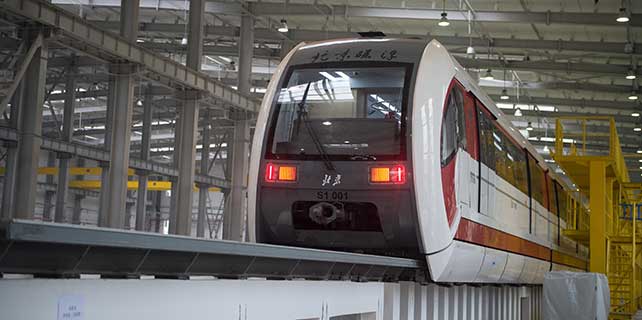Nation to beef up research of key components
China will ramp up investment to develop essential industrial components and materials next year, in a move to reduce reliance on foreign technology in key sectors including telecommunications and railways.
Miao Wei, minister of industry and information technology, said on Monday the ministry will channel more resources to help tackle technological bottlenecks in 20 industrial parts and 15 industrial materials.
The initiative is designed to promote homegrown parts related to telecommunications, the internet of things, railway equipment, machinery manufacturing and other sectors.
"Though China has emerged as one of the world's largest manufacturing powerhouses, we still have to import basic components from other countries. We need to change that," Miao said at a conference in Beijing.
The move is part of China's broad effort to boost the competitiveness of its manufacturing sector, by encouraging firms to embrace the internet, big data and other information technology.
According to the ministry's forecast, China's industrial output will expand 6 percent year-on-year in 2017, roughly the same growth rate as this year.
Wang Ying, an engineering expert at the Beijing-based China Center for Information Industry Development, said there is an urgent need to cultivate domestic firms' ability to mass-produce reliable industrial components.
"High-speed railways, for instance, embody China's technological prowess, but frankly speaking, several of their parts still rely on imports," Wang said.
Ding Zhilei, assistant president of Ninebot Inc, a Beijing-based maker of personal electric vehicles and robots, said the problem also exists in the country's booming robotics industry.
A robotic arm can be worth several million yuan, and most of that cost comes from foreign components, such as speed reducers and servomotors.
"The strong policy support will accelerate firms' research and development efforts, and inspire innovation in this cash-intensive industry," Ding said.
At the conference on Monday, the ministry also said it planned to set up an investment fund to advance the development of new materials such as heat-resistant alloys, lightweight materials, and graphene, which is reportedly 200 times stronger than the strongest steel.









